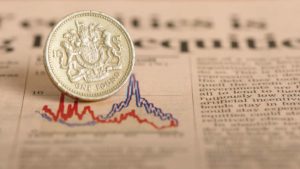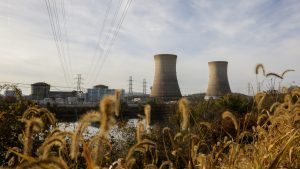Shell (LSE: SHEL) made a number of shareholder-friendly announcements yesterday, including plans to distribute more cash via dividends. It’s also maintaining oil output until 2030, as well as cutting businesses that aren’t making enough money. Does this news now make Shell stock a buy?
Cost-cutting
At an investor day in New York on 13 June, chief executive Wael Sawan set out the oil major’s strategy for the next few years. The most noteworthy announcement was that the FTSE 100 firm intends to keep oil production stable until the end of the decade.
This appears to be a shift from its previously announced target to cut output 1%-2% each year for the rest of the decade. However, the company says this target was already met in 2021, following the $9.5bn sale of its interest in an oil project in Permian Basin, Texas. That disposal resulted in a significant drop in the number of barrels of oil it produced.
Management also announced that the company was selling off underperforming assets. This includes a gas project in Australia and its business in Pakistan, where Shell has operated for 75 years. Other chemicals operations and refineries are under review.
One outcome of all this is that the energy giant will return more cash to shareholders. It increased the dividend by 15%, and distributions will be increased to 30%-40% of cash flow from operations through the cycle. This is up from 20%-30% previously.
It also plans to buy back at least $5bn of shares in the second half of this year, and reduce capital spending in 2024 and 2025.
Investing for the future
Additionally, Shell announced it would invest between $10bn and $15bn on low-carbon initiatives from 2023 to 2025. One area it’s leaning into is building more charging stations for electric vehicles (EVs).
This seems to be low-hanging fruit, as it already has 46,000 petrol stations around the world. It can just add chargers in the same prime locations where it’s already selling fuel.
In China, which has the largest and most developed EV market in the world, the company says its EV charging customers go to its charging stations twice as much as its refuelling customers attend petrol stations.
The reasons seems to be that many Chinese residents live in high-rise buildings, not homes where it is possible to have a personal charging setup. So this could be a viable long-term opportunity for the company.
However, I doubt this and other projects (such as biofuels and hydrogen) will ever make the same profits as its existing oil and natural gas operations do. That’s assuming long-term demand for fossil fuels will decline, which most experts are predicting.
Long-term uncertainty
Investors buying the stock today can expect a dividend yield north of 4%. And the predicted payouts over the next couple of years are well covered by record historic earnings. So the near-term income prospects appear rock solid.
Plus, ongoing and future buybacks should support the share price in the medium term.
Longer term however, I’m on the fence. I don’t see how its remaining net-zero target aligns with keeping oil production steady. And with fossil fuel consumption set to decline, its ability to sustain generous dividends and buybacks seems uncertain to me.
On balance then, I’d rather invest in other dividend shares today.
This post was originally published on Motley Fool







